
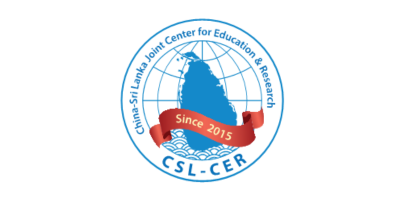
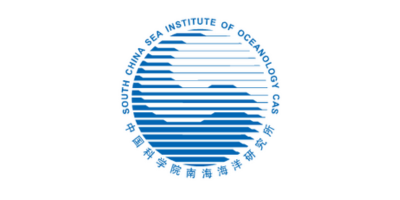



CCATL 2025
Speakers
Keynote Speakers
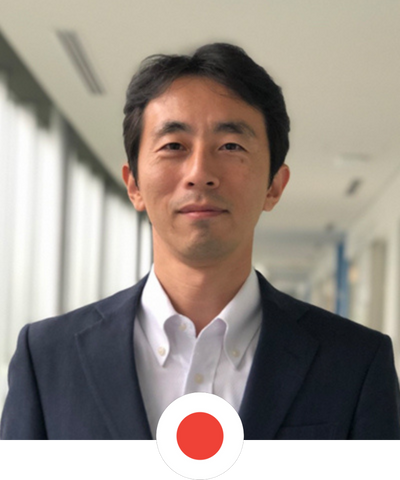
Prof. Dr. Naoki Hirotsu
Professor at Toyo University,
Japan
Dr. Naoki Hirotsu is a Professor at Toyo University, Japan. He obtained his PhD in Agricultural Sciences from the University of Tohoku, Japan 2005. His PhD thesis is on the photosynthetic acclimation mechanisms of rice under sub-optimal temperature. Then, he was a post-doc at National Institute of Agrobiological Sciences, Japan. Where, he involved in the molecular genetics and physiology of rice to increase grain yield. Now, he is focusing on the genetic regulation of grain yield and quality. He has published more than 40 papers and two book chapters, most of his research articles are published in high impact journal including Nature Genetics.

Prof. Dr. Deli Chen
Redmond Barry Distinguished Professor
School of Agriculture, Food and Ecosystem Sciences
University of Melbourne
Deli Chen is a Redmond Barry Distinguished Professor at the University of Melbourne. He is an internationally recognised soil scientist conducting research on agricultural nitrogen use and its impact on global food security, the environment and climate change. He is the Discipline Leader of the Soil and Environment Research, School of Agriculture, Food and Ecosystem Sciences, University of Melbourne. He is the Director of ARC Research Hub for Smart Fertilisers, a multidisciplinary program involving soil science, plant science, chemistry, chemical engineering, and industries (Incitec Pivot Fertilisers and Elders) that aims to produce a new generation of nitrogen fertilisers for transformational improvements in nitrogen use efficiency. He was the Director of Australian-China Joint Research Centre, Healthy Soils for Sustainable Food Production and Environmental Quality. He has more than 300 peer-reviewed journal publications (including Nature, Science, Nature Food, Nature Communications, PNAS, with H index of 70). He has been highly successful in securing national and international competitive grants from a range of funding sources. His research grants (as the lead chief investigator) totalled >A$60 million over the last 24 years ($35 m in last 5 years). He is a Fellow of the Soil Science Society of America, Soil Science Australia and Fellow of the American Society of Agronomy.

Dr. Bruce Kimball
Soil Scientist
Arid-Land Agricultural Research Center
USA
For most of his professional career, Dr. Bruce Kimball studied the effects of elevated CO2 concentrations on plant growth and water relations. He assembled and analyzed the published literature on this topic, as well as the likely effects of global change on water resources. He led or co-led large cooperative multi-variate experiments using open-top chambers (OTC) and free-air CO2 enrichment (FACE) to expose field-grown crops to elevated CO2, including sour orange, cotton, wheat, and sorghum. Besides his management role, he was responsible for the measurement of canopy microclimate, energy balance, and evapotranspiration. He established the feasibility of using arrays of infrared heaters in order to study the effects of global warming on open-field plots (T-FACE). He then led a 2-year Hot Serial Cereal experiment wherein wheat was serially planted every six weeks and exposed to infrared warming on some of the planting dates, thereby producing a dataset for wheat response to a huge range of natural and artificial temperatures under open-field conditions. He facilitated the use of the FACE and T-FACE data for validating crop growth models as a means to extrapolate the knowledge gained to other locations and future times. More recently has been working to improve plant growth models, including leading inter-comparison studies among numerous models in their ability to simulate evapotranspiration and soil temperature.

Prof. Ranil Coorey PhD
FAIFST
Director Learning and Teaching
School of Molecular and Life Sciences
Curtin University, Australia
Professor Ranil Coorey obtained his BSc in Food Technology from the University of the Philippines, Diliman in 1991. He then went on to pursuing his Master’s degree in Food Science and Technology at Curtin University, Perth, Australia and completed the same in 1996. Further, Professor Coorey completed his PhD at Curtin University in 2008. Professor Coorey has worked in the food industry in different countries for many years before joining Curtin University as an academic, where he continues to lecture in food product innovation and food safety. Currently, he is also the Director of Learning and Teaching in the School of Molecular and Life Sciences and former Discipline Leader of the Food Science and Technology program and its Course Coordinator. During his long career in the food industry, he has developed commercial food safety management systems and food products while working mainly in research and development and product innovation. Being a University academic as well as a researcher, he is, currently, engaged in a variety of industry-funded projects on chicken and meat cold-chain-management and safety and product innovation. Moreover, he also holds an international collaborative research project on safe chicken processing, which includes Australia and several African countries, namely, South Africa, Kenya, Ghana and Uganda. Professor Coorey’s other research projects include a large Australian government grant on red meat safety and industry-funded Australian native food processing and safety. Professor Coorey’s projects on Australian native food processing has identified possible unique food ingredients that can now be commercialised. Being a prolific academic writer, he has published extensively in high impact internationally peer reviewed SCI journals. Professor Coorey has supervised numerous MSc and PhD students from around the world, including those from Sri Lanka. Further, he closely works with many Sri Lankan scientists both at Curtin University and Sri Lanka. Professor Coorey was instrumental in establishing a link program between the University of Ruhuna and Curtin University and an MOU to this effect was signed in 2017. As part of the link programme, collaborative research on chicken meat safety, novel food product development etc will be carried out both in Sri Lanka and Australia. Moreover, staff and student exchange programmes, joint undergraduate and postgraduate programmes will also be established between these two Universities.

Prof. Dilantha Fernando
Dean of the St. Paul’s College and Professor
Department of Plant Science, Faculty of Agricultural and Food Sciences
University of Manitoba, Canada
Dilantha Fernando was born in Colombo, Sri Lanka. He received a B.Sc. (Honours) in Botany from University of Peradeniya, M.Sc. in Microbiology from University of Kelaniya, Sri Lanka and a Ph.D. in Plant Pathology from Oregon State University in 1991 under Dr. Bob Linderman. After completing postdoctoral positions at Michigan State, University of Arizona, McGill and Agriculture and Agri-Food Canada, he joined the Department of Plant Science, University of Manitoba, Canada as an Assistant Professor in 1998. He was promoted to Professor in 2006. Dr. Fernando is a world-authority on blackleg of canola. By delivering sound disease management advice based on his research, he built trust in the grower community. This impact and trust, along with his success in alleviating a trade barrier to seed export to China, led to an unprecedented cooperation among farmers and seed companies to introduce rotation of R-genes to combat blackleg of canola in Canada for this $26.6 billion industry. Twenty uninterrupted years of industry funding is a testament to the importance of Fernando’s program to the canola industry. He has received over $35 million in competitive research grants. Dr. Fernando was the first to report new races of the blackleg pathogen in North America, Brazil, Hungary and Iran. His work characterized the race structure of the pathogen, defined R-genes and adult plant resistance in canola varieties and documented the breakdown of R-gene mediated resistance to blackleg in canola grown in Western Canada. This research led to the development and industry-wide implementation of R-gene rotation in Canadian canola cultivation to reduce the disease occurrence and R-gene breakdown. His findings led seed companies to breed for new sources of resistance, add new R-genes to cultivars, and label cultivars for the R-gene content. Dr. Fernando’s collaborative pre-breeding and breeding efforts were key to the success of the canola and HEAR industry. His research of the canola transcriptome with collaborators has led to a greater understanding of the underlying mechanisms of resistance. Fernando and his collaborators have also made a significant discovery on how the phenotypic effect of an avirulence gene’s interaction with the corresponding R-gene in the host (incompatible) can be ‘masked’ by the presence of another avirulence gene, giving a virulence phenotype (compatible) in the field. Because of the importance of the work and to ensure continuation of the work, the pathology and breeding program was awarded CAN$3.4 million in the largest single grant awarded by the Natural Sciences and Engineering Research Council of Canada (NSERC-CRD) for any agriculture project in its history, with 25% of the funding committed by industry. Dr. Fernando’s stature in canola production and blackleg pathology is respected internationally. In 2009, the Chinese government imposed a 100% restriction on canola seed imports from Canada, a $3.0 billion annual loss to Canada’s economy, as blackleg is not present in China. Fernando was selected as the lead scientist to address this crisis. His research reports and results have been instrumental in removing a large portion of the restrictions, adding billions of dollars to the Canadian economy. In addition to the impact of his work on the blackleg pathosystem, his research on Fusarium head blight has had tremendous impact. In 1993, when Fusarium head blight became an epidemic in North America, Fernando’s pioneering studies with colleagues on the dynamics of ascospore release, dispersal, and ensuing infections increased the knowledge of the epidemiology of this important disease. His recent efforts to understand the population structure of F. graminearum and the spread and increase of more potent toxin-producing strains in the Prairies have led to an awareness in increased vigilance in grain inspection and safety of the food and feed industry. Equally, Fernando is a pioneer in advancing biological control in Canada. He and his collaborators developed the first successful biological control in field crops in Canada. His findings in phyllosphere biology have led to collaborative research on mechanisms of biological control and resulted in the full genome annotation of the two biocontrol agents. Industry has joined Fernando and collaborators to commercialize this system through a NSERC-CRD grant. Growers, the seed industry and government agencies have demonstrated their confidence in his work with high levels of consistent funding. In addition to continued funding for basic research, Fernando was recognized for service to growers, regional schools, scientific societies, and international agriculture with the university’s prestigious Outreach Award (2006). For his collaborative research in Australia, he received the Eminent Visiting Scientist Scheme (EViSS) Award from University of Southern Queensland (2017), and an Organisation for Economic Co-operation and Development (OECD) Fellowship (2016). He has given over 90 invited or keynote talks and coauthored 136 peer-reviewed articles, and 14 book chapters. He is an editor for numerous international journals. In addition to Fernando’s significant scientific contributions, he has provided exceptional service in key leadership roles in the American Phytopathological Society (APS) and the Canadian Phytopathological Society (CPS). He is presently serving as the President of the CPS. Within CPS he has also served on the Executive Board of the CPS as Treasurer, as Vice President, President-Elect, and on the Financial Advisory Committee. Within APS, he served on the APS Scientific Program Board as Workshops Chair, as the first chair of the APS Joint Committee on Women in Plant Pathology and Cultural Diversity, and APS Phytopathology News Advisory Board. Dr. Fernando has made outstanding contributions in mentoring and training 14 Ph.D., 15 MSc, 23 postdocs, 22 visiting scientists and 68 undergraduates. His former students are working in academia, industry, and government throughout Canada and around the world. In 2006, Fernando was honored with the coveted Excellence in Graduate Training and Mentoring Award, an award given to only one academic at his university. Additionally, he received the Excellence in Graduate Teaching and Mentoring Award from the University of Manitoba (2017) and received the University of Manitoba Merit Award for Excellence in Teaching, Research and Service five times (2004, 2006, 2009-2011). In 2017, he was appointed as Dean of Studies at St. Paul’s College, University of Manitoba, recognizing his strong commitment to student education.

Garry J O'Leary
Senior Research Scientist
Honorary School of Agriculture, Food and Ecosystem Sciences
The University of Melbourne
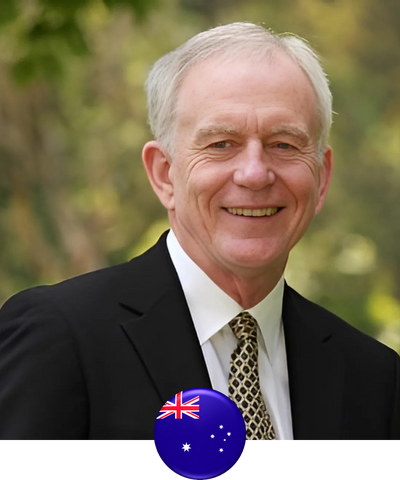
Prof. Robert Henry
Professor Henry, is a graduate of the University of Queensland, B Sc (Hons), Macquarie University, M Sc (Hons) and La Trobe University (Ph D). In 2000 Professor Henry was awarded a higher doctorate (D Sc) by UQ for his work on analysis of variation in plants.
He is currently Professor of Innovation in Agriculture. Before being appointed QAAFI Director (May 2010-September 2020), he was Director of the Centre for Plant Conservation Genetics at Southern Cross University, a centre which he established in 1996. Other previous positions held by Professor Henry include Research Director of the Grain Foods Cooperative Research Centre (CRC) (until 2010) and Research Program Leader in the Queensland Agricultural Biotechnology Centre (until 1996).
Professor Henry’s speciality research area is the study of agricultural crops using molecular tools. He is particularly interested in Australian flora and plants of economic and social importance and has led the way in research into genome sequencing to capture novel genetic resources for the diversification of food crops to deliver improved food products.
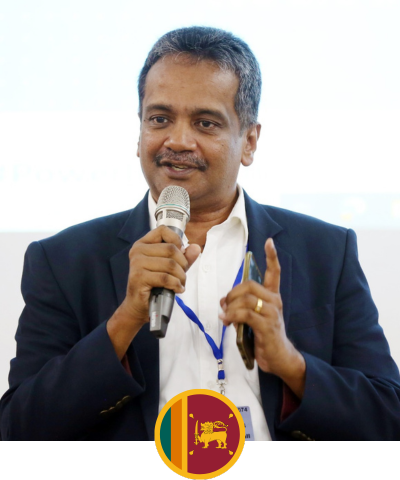
Prof. Buddhi Marambe
Senior Professor
President – Weed Science Society of Sri Lanka (WSSSL)
Chairman, National Invasive Species Specialist Group (NISSG), Ministry of Environment
Member. National Experts Committee on Climate Change Adaptation (NECCCA), Ministry of Environment
Sri Lanka
Professor Buddhi Marambe has more than 36 years of experience as an academic attached to the Department of Crop Science of Faculty of Agriculture, University of Peradeniya, Sri Lanka. His research interests include weed science, climate change adaptation, and food security.
Prof. Marambe has won the prestigious “Lifetime Achievement Award” from the International Weed Science Society (IWSS) in 2022 for the contribution made to field of Weed Science. He has also won the “Presidential Award” and “National Research Council (NRC) Merit Award” in Sri Lanka, for scientific research.
Professor Marambe is the President of the Weed Science Society of Sri Lanka (WSSSL), Chairman of the National Invasive Species Specialist Group (NISSG) and the former Chairman and a member of the National Experts Committee on Climate Change Adaptation (NECCCA) of the Ministry of Environment.
Prof. Marambe is a member of the Government Delegation on climate negotiations at the United Nations Framework Convention on Climate Change (UNFCCC), and has served in this position since 2013. He is also a member of the Public Enterprise Expenditure Review Committee (PERC) of the Government of Sri Lanka focusing on the Ministry of Agriculture. He was also the Assistant Secretary of Lanka Organic Agriculture Movement for the period 2001-2003. While being an academic, Prof. Marambe has also served as a non-executive member of the Boards of several private sector organizations providing technical guidance to agriculture-related operations, and Council Member/Executive Committee member of many professional entities, including Universities of Sri Lanka.
Professor Marambe has provided his services to the government of Sri Lanka in terms policy development and also as a consultant to the World Bank (WB), Asian Development Bank (ADB), European Union (EU), United Nations Development Programme (UNDP), Food and Agriculture Organization FAO), World Food Programme (WFP), United Nations Environment Programme (UNEP), World Agroforestry Center (ICRAF), International Water Management Institute (IWMI) and International Center for Tropical Agriculture (CIAT) in nationally and internationally important issues related to climate change adpatation, food security, and agriculture.

Prof. Petra Högy
Institute of Landscape and Plant Ecology
University of Hohenheim
Germany

Dr. Samuel Thevasagayam
Director, Livestock Team
Programs
Gates Foundation
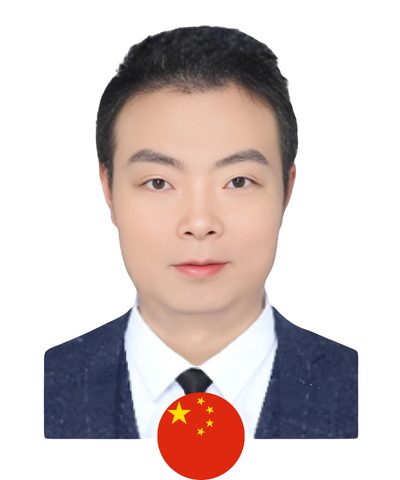
Prof. Gefei Hao
Director of the Belt and Road Joint Laboratory,
Guizhou University, China,
Recipient of the National Science Foundation of China

Dr. B. Mario Pinto
Vice President Research & International, University of Manitoba
Member, Governing Circle of the National Centre for Truth and Reconciliation,
Canada.

Dr. Rohana Subasinghe
Honorary Life Member of the Asian Fisheries Society
Past President of the World Aquaculture Society – Asia Pacific Chapter (WAS-APC).
Retired Chief of FAO Aquaculture Service Co-founder and Director,
FUTUREFISH Co. Ltd., UK

- The International Institute of Knowledge Management
- #531/18, Kotte road, Pitakotte
- +94 11 799 2022 / +94 76 573 3737
- isanka.gamage@tiikmedu.com
- https://tiikm.com/